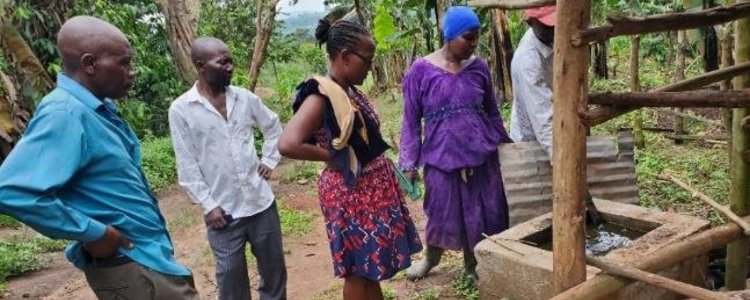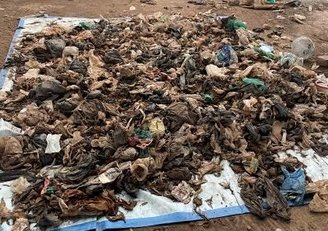Firstly, students and researchers from Makerere University’s Socio-Economics department were hard at work carrying out household surveys within Imvepi refugee settlement and Wakiso District, to determine residents’ baseline knowledge and acceptance of fecal sludge-derived products that might benefit their subsistence farming activities. With a dedicated, determined team, the research group was able to achieve a sample size of greater than 1,000 households between the two destinations. Meanwhile, the Biosystems Engineering group was finishing up experiments on myriad fecal sludge treatment and valorization methods, and even traveled up to Imvepi to help train and equip workers on the newly installed vermicomposting unit at the combined fecal and waste management center in the settlement. The Agronomy group has wrapped up multiple rounds of experimentation on black soldier fly co-composting with fecal sludge and its effect on corn crop yields. With upwards of 19 students working within the project in some form or fashion, there are many theses and scientific publications underway, with already multiple bachelor’s students and one master’s student, Agnes Nalunga, having completed their studies.
Secondly, the Uganda Red Cross Society (URCS) has also been playing its part in the ongoing progress of CPUg. At the heart of the past year’s success has been the construction of the aforementioned vermicomposting and solid waste management units within Imvepi’s combined fecal and waste management center. This facility represents a significant stride towards the project’s overarching goal of sustainable waste management. By harnessing the power of vermicomposting, not only is the environmental impact mitigated, but it also allows for fecal sludge to be converted into compost for soil amendments, increasing circularity in the system. Moreover, the establishment of this facility, and the start-up of the solid waste management component, will result in the creation of a ripple effect of positive outcomes within the community. From cleaner streets to enhanced public health and economic opportunities, the URCS is delivering on its promise to uplift and empower communities. With a newly restructured team working on CPUg, the URCS has reignited its commitment to realize the full potential of the project.
Finally, the Vienna University of Technology (TU Wien), for its part, has been doing its fair share, too. APPEAR PhD scholarship holder, Francis Okori, completed half of his course requirements, published his first scientific paper, and conducted lots of field and lab work, both in Uganda at the predetermined composting sites (Mukono and Masindi), and in Austria at the TU Wien Institute of Water Quality and Resource Management. His results will help plant managers improve their processes and compost quality. Sara Neuburg, by contrast, has been exploring the residual waste resulting from the composting facilities, in hopes of determining their recycling potential, and their potential to be processed as refuse-derived fuel (RDF). She has successfully conducted the first of two sampling campaigns to this end. Team member, Richard Lee, has applied to enroll for his doctorate and has already started into the work on his first paper on Clean Development Mechanism (CDM) projects in the waste sector. Otherwise, TU Wien has been continually playing host to all of the coordinating and administrative functions within CPUg—including setting up its LinkedIn page.
Project website of Clean and Prosperous Uganda – Fecal Sludge and Solid Waste Management for Improved Livelihoods | CPUg

